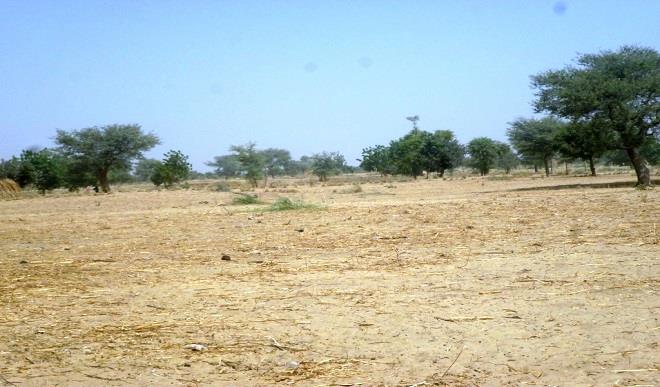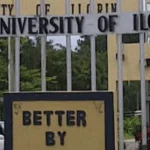
Katsina State is among the 11 states across the north-west and north-eastern zones of the country threatened by adverse desert encroachment which poses great danger to agriculture, food security, and water resources.
Of the state’s 34 local governments councils, eight — Daura, Maiadua, Zango, Sandamu, Baure, Jibia, Kaita, Mashi, Katsina — mostly the bordering Niger Republic are most affected. These areas have been grappling with the challenge of desertification which travels at 0.6 kilometres every year, leading to soil erosion and disruption of the ecosystem.
Desertification is the persistent degradation of land ecosystem by climate variation and human activities and is one of the greatest environmental challenges witnessed nowadays; it is a major barrier to meeting basic human needs in dry land.
The geographical location of Katsina State makes it vulnerable to the gradual deterioration of the environment due to persistent deforestation which can be seen from the deliberate felling of trees and other forms of vegetation, over grazing and faulty farming practices. These greatly affect the socio-economic life of the inhabitants.
Most vulnerable to this menace are the numerous medicinal and economic trees which were abundantly found in farmlands across the area but are no longer easy to come by.
Some of these trees are the Parinari Macrophylla (Gawasa), Sclerocarya Birrea (Daniya), Detarium Macrocarpum (Taura) Doum Palm (Goruba), Tamarind (Tsamiya), Balanites (Aduwa), Ziziphus (Kurna), Acacia Albida (Gawo), Prosopis africana (Kirya), Lannea acida (Faru), Ebony Tree (Kanya), Shea (Kadanya), Black Plum (Dinya), Honey Locust (Dorawa) and Acacai nilotica (Bagaruwa).
Disturbed by the trend, the Daura Emirate Development Association organised a lecture titled: “Desertification and Afforestation in Daura Emirate’, in a move to raise awareness and proffer solution to the menace of desert encroachment that is affecting the region.
The guest speaker, an environment expert, Sade Abdullahi, said “no fewer than 15 indigenous trees of high economic and medicinal values are rapidly being lost due to desertification in Katsina”, an action that will spell doom for future generations if not properly checked.
He said it was alarming to note that these indigenous trees species “are going extinct and we must work to save them.
“Our generation may not see the consequences, but our children and their grandchildren will have no alternative but to live with them if nothing is done,” he said.
What is more worrisome is the fact that these indigenous tree species which are of high economic and medicinal value are rapidly being lost as a result of human activities which are detrimental and a setback to our development.
To address this, Abdullahi advocated for sustainable forest resource management which would ensure that the current generation utilised wisely the available natural resources without necessarily compromising the availability of the resources to the future generation.
This, he said, can only be achieved when the volume of wood harvested at a given period of time does not exceed the net growth that the forest is capable of generating during same period.
Another expert, Professor Muhammad Sani Kalla, said the lecture was organised to mobilise local and national action against desert encroachment in the state and other affected areas across the country.
He said at present, agricultural activities along the Sahel belt of Nigeria were threatened by desert encroachment. “If you look carefully, feed for livestock in this particular area is becoming a problem especially at the tail end of the dry season like now,” he said.
He attributed the loss to indiscriminate felling of trees which exposed the emirate to dangers of desertification, loss of soil fertility and other effects of climate change among others.
He urged on and sundry to at least plant a tree and nurse it to maturity as part of measures to prevent desertification and soil degradation in the area which, he said, was the most vulnerable.
“So you can be sure if their livestock are not well fed, pastoralists will not have surplus to take to the market and get money. So that is why we are looking at it as a threat that we have to do something about. And the way we are doing it is by organising enlightenment campaigns like this lecture to at least bring awareness on the situation and offer some solutions,” he said
Professor Kalla encouraged schools to initiate clubs that would engage students in tree planting and other practices that would preserve the environment.
“We encourage schools to set up school clubs and there are many other ways of motivating pupils and students like introducing competition and giving them prizes. We just want to inculcate tree planting into our own psyche,” the don said.
For Abdul-Aziz Hassan, a director at the state Ministry of Environment, the government’s recent efforts to implement the Great Green Wall Project, which seeks to establish shelter belts in dry regions of the world, is among steps taken to address the adversity of desertification.
He said the proximity of these areas to the Sahara makes them more vulnerable, adding that, “We are giving them special focus in terms of measures in desertification control. These LGAs are provided with amenities that will mitigate the effects of desertification as well as provide alternative sources of trade for the locals.”
On his part, the senator representing Daura zone, Sen. Mustafa Bukar, promised that the eighth Senate would support the campaign against deforestation through relevant legislations and effective monitoring of agencies charged with curbing desert encroachment in the country.
He said this year’s budget has special provisions for desertification and the Senate would closely monitor agencies that had the mandate to combat desertification and other environmental challenges.
“There is also the need for farmers to stop felling trees while clearing their farmlands because trees hold the soil in place and help prevent erosion,” he said.
The Emir of Daura, Alhaji Umar Faruk Umar, called on educational institutions, the media and other influential stakeholders to join the campaign to keep the environment green.

 Join Daily Trust WhatsApp Community For Quick Access To News and Happenings Around You.
Join Daily Trust WhatsApp Community For Quick Access To News and Happenings Around You.


